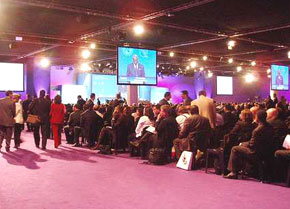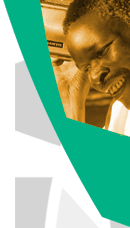|
|
 |
The World Summit on the Information Society Introduction
From November 16th through 18th 2005 over 10,000 representatives from governments, civil society and the private sector from all around the world gathered in Tunisia’s capital Tunis for the ‘World Summit on the Information Society’ (WSIS).
This summit marked the end of a UN supported process starting in 2001 wherein plans were formulated to build a ‘people-centred, inclusive and development-oriented information society’.
In 2001 it was recognised that information communication technologies (ICTs) and the internet were more and more shaping the world. It is therefore important to ensure that the growth of this information society includes all.
In a first summit in Geneva in 2003 175 countries agreed on plans to put the potential of knowledge and ICTs at the service of development. The Tunis Summit yielded practical agreements between countries in the form of a ‘ Tunis Commitment’ and a ‘ Tunis Agenda’ to build the information society.
NiZA and its partner organisations Media Institute for Southern Africa (MISA) and Highway Africa acknowledged the importance of taking part in this global discussions to ensure that the African voice and point of view were also heard in the discussions and included in the agreements.
For this reason NiZA supported MISA to engage as part of a partnership of African NGOs in lobbying and advocacy at the two Summits  | | WSIS Plenary Hall (Bill Thompson) |
as well as at the preparatory meetings that took place. Another focus of the support MISA received was to include voices at the national level through stimulating debates in Southern African countries. An important outcome of MISA its work, together with other civil society organisations from around the world, is that the summit agreed that Freedom of Expression is central in an information society, and freedom of expression and media freedom should be observed on the internet as well.
Highway Africa received support for the establishment of its Highway Africa News Agency (HANA), which has been reporting on the WSIS process since the beginning and has, by doing so, been the press agency having the broadest coverage of the WSIS process. This has been an important feat, since HANA turned the tables in that it enabled African journalists to cover issues important to Africa itself and create its own content.
The WSIS process has ended, though this does not end the challenge for organisations such as NiZA, MISA and Highway Africa. The next challenge is to keep the issues on the agenda, and to ensure that commitments are turned into actions.
| |
|
|

|
 |  |  |  |
|

